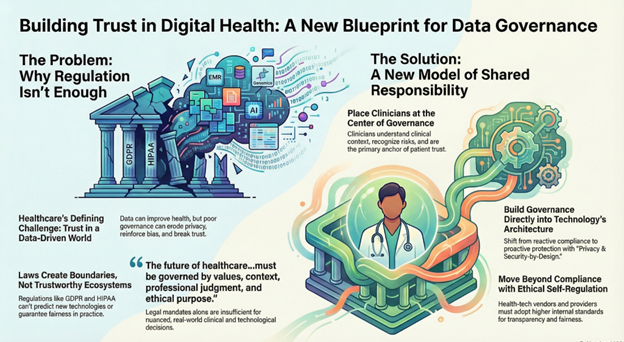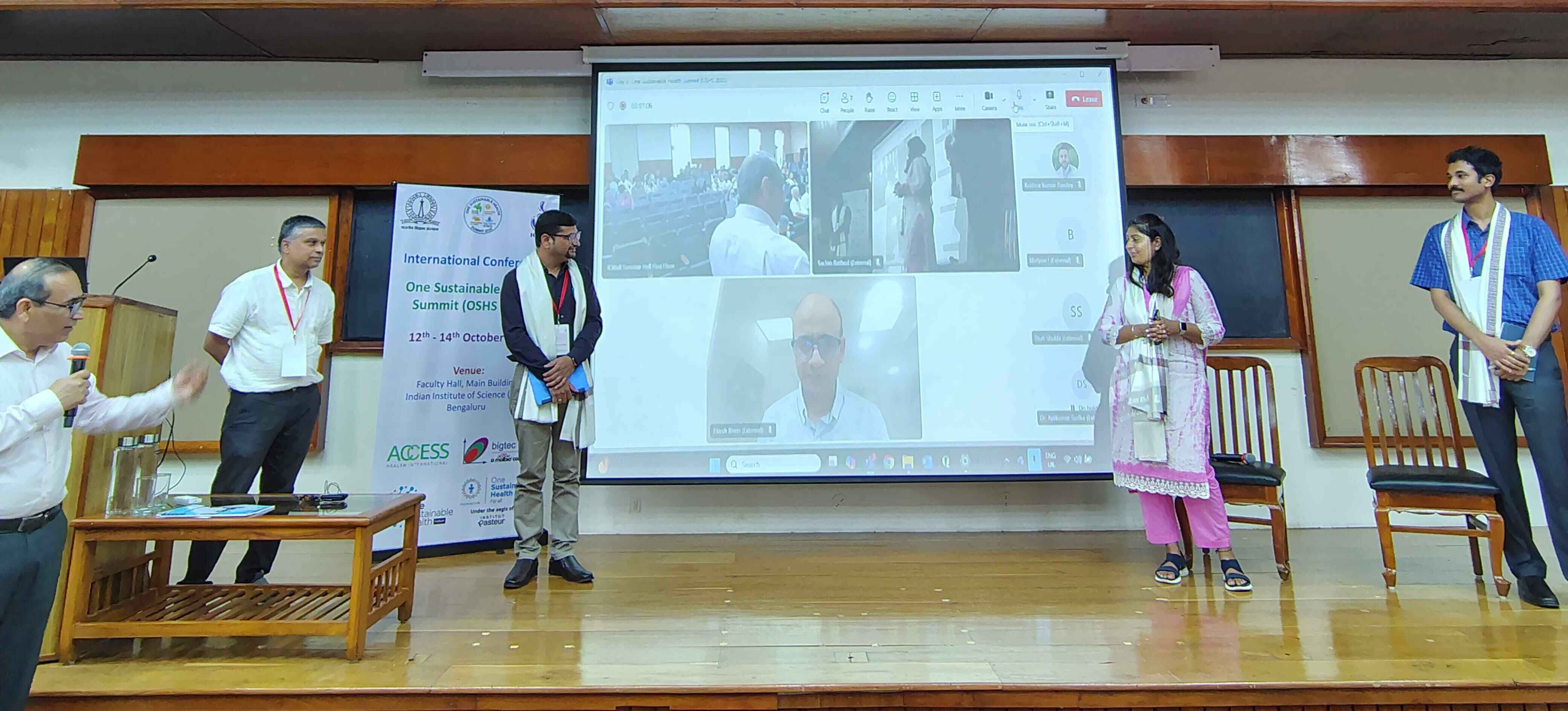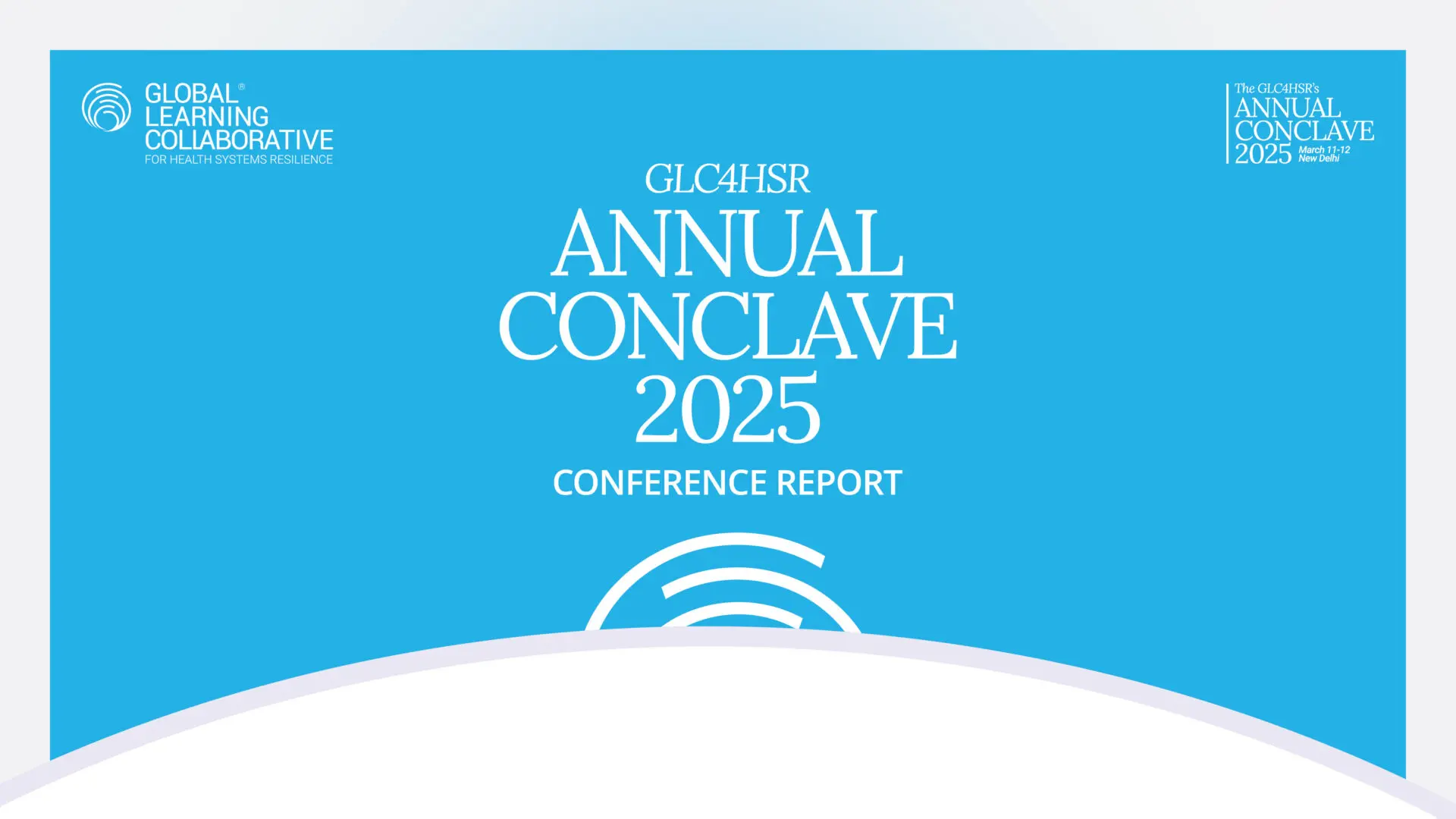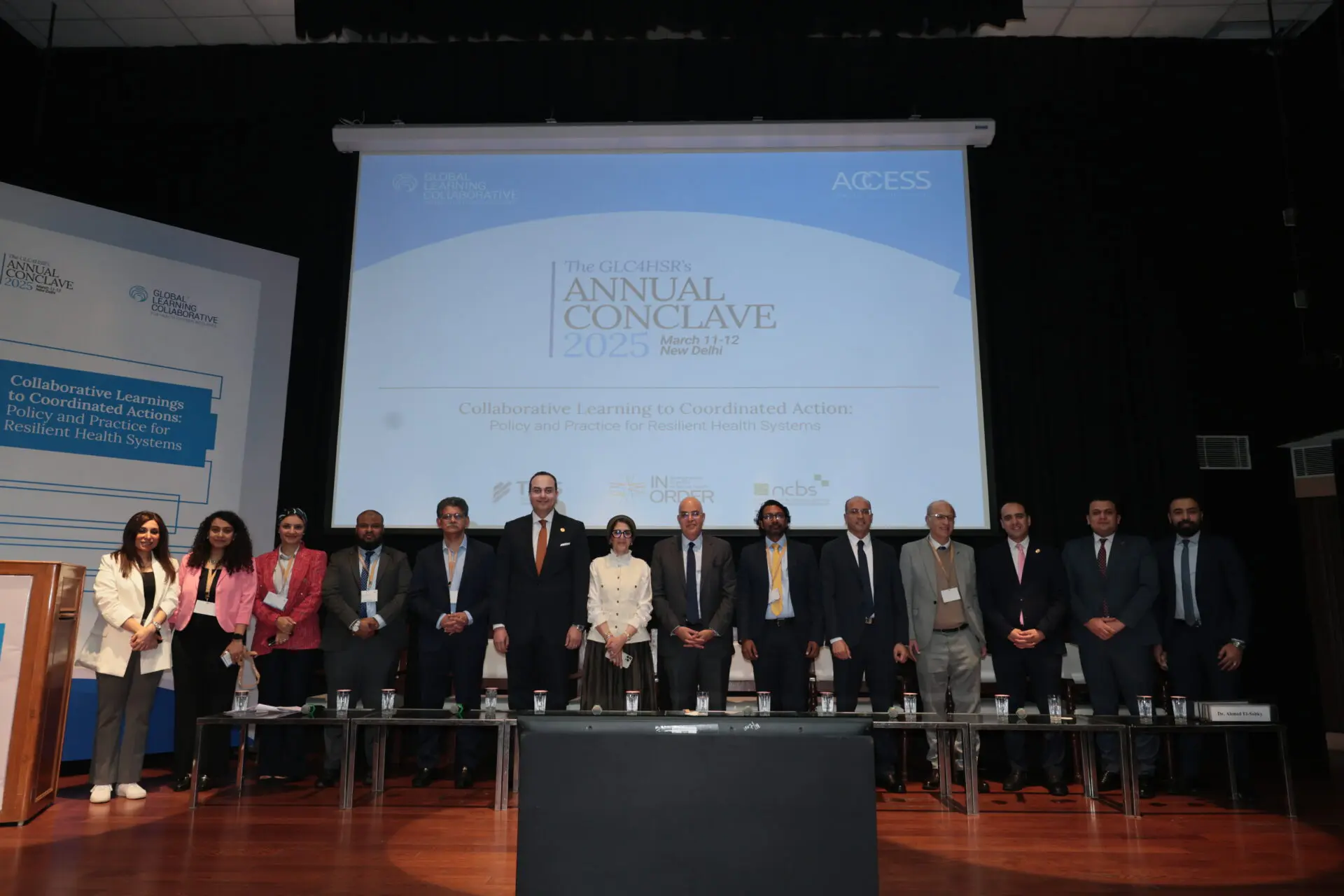Health System Resilience Assessment: Summary of the Discussions from GLC4HSR Annual Conclave Session
Updates ▪ May 2, 2024
Authored by Sushma D'Souza
In the wake of global public health crises such as COVID-19 and Ebola, there is a pressing need for proactive intentional efforts to address health challenges. This prerequisite calls for an in-depth look into previous disasters to extract insights into strengthening the resilience of health systems. We can gain tangible lessons from previous achievements and failures that guide strategic improvements, making our health systems more resilient and adaptable to future setbacks. The GLC4HSR emerged from this urgent need to strengthen health systems worldwide. Rooted in the ambition to reinforce these systems, the GLC4HSR is committed to continuous learning and action. Overall, GLC4HSR emphasizes the importance of cooperation, communication, and shared knowledge in achieving resilience within the Health Systems.
Through ongoing peer-to-peer learning and collaborative efforts, this initiative has undergone significant evolution. Recently, it convened its 2nd Annual Conclave in Singapore, gathering global health experts from around the world. Key insights and recommendations from the health system resilience assessment session, have been documented in this article. Among the focal points of discussion were health system resilience assessment indicators and strategies for countries to enhance their resilience by adopting and implementing these indicators effectively.
The session highlighted the significance of community resilience and health literacy for sustainable engagement, emphasizing collaboration across governmental levels to identify health system gaps and leveraging successful practices across states. It underscored the need to assess existing monitoring processes for resilience-focused indicators and engage the private sector in policy dialogues and disease tracking. The speakers on this session were Dr. Sohel Saikat, Mr. Rajib Sen, Dr. Hossain Zillur Rahman, Ms. Jiuen Lee, and Mr. Maulik Chokshi.
Key Points and Recommendations
Collaborative Approach
There is a dire need for collaboration among stakeholders to build resilience in health systems. This collaboration is essential for better managing future pandemics and mitigating their impact on both health and economic fronts. Moreover, it is crucial to differentiate between profit-driven entities and socially oriented players within the private sector. Advocating for inclusive dialogues to bridge existing gaps is paramount. Engaging in discussions with the private sector to identify these players and include them in conversations is essential for bridging the gap between private and public healthcare.
Diversifying Service Delivery Platforms
Ensuring that routine health services can coexist alongside responses to public health emergencies like COVID-19 is paramount. Resilience, in this context, becomes our cornerstone—a proactive stance against the inevitable ebb and flow of global health crises. In addition to strengthening our capacity to react quickly and efficiently to emergencies, diversifying our service delivery platforms lays a solid foundation for long-term healthcare supply in the face of changing difficulties.
Strengthening Surveillance and Response Mechanisms
The COVID-19 pandemic served as a stark wake-up call, exposing the vulnerabilities within our surveillance and response mechanisms, revealing glaring gaps in our ability to protect vulnerable populations. Bolstering surveillance capabilities is imperative for shoring up our defenses against future pandemics.
Promoting Integration
Integration must permeate to every level of our operations, from global policymaking to on-the-ground implementation. We cannot afford to be operating in silos, especially when confronted with crises that transcend borders. Emphasizing the integration of health system indicators across governmental levels and leveraging best practices to enhance adoption is vital. Prevailing gaps exist when it comes to applying an integrated approach to health system strengthening in policymaking, planning, resource allocation, service delivery, etc. These gaps stem from chronic under-investment and under-prioritization of public health, compromising health prevention and promotion due to the focus on hospital services.
The current approach highlights a gap in integration, especially at the country level, where capturing data from marginalized groups and conflict zones remains a challenge. Service continuity planning indicators, though crucial, are often underutilized. Re-evaluating monitoring and evaluation processes to include resilience-focused indicators is vital. This will emphasize the importance of collaboration across sectors, ensuring better coordination and bridging gaps during future public health emergencies.
Reflection on Past Disruptions and Utilizing Missed Opportunities
The discussion started by acknowledging past disruptions, highlighting the need to learn from past experiences. This reflection underscores the importance of preparing for future challenges based on lessons learned. There is a call to utilize missed opportunities before the next shock occurs. Learning from past mistakes and effectively deploying resources for future resilience are highlighted as essential strategies.
Awareness and Literacy
Preventative actions, outreach, and education have been emphasized to minimize the impact of shocks. This includes focusing on health literacy and proactive engagement with communities and civil society organizations. To foster resilience in any system, it is essential that stakeholders are well-informed and actively engaged. As part of this endeavour, there is a pressing need to embed robust health interventions within school curriculums. Such an initiative not only cultivates health awareness among students but also yields far-reaching benefits for entire communities.
Lessons Learned and Action
Translating lessons learned into action is crucial for building resilience. Firstly, documenting lessons learned is a critical part of the ensuring that health system learns from the crisis. This would involve capturing and recording the knowledge gained from a project, including both successes and failures, to improve future preparedness. Secondly, relentlessly measuring the health systems performance is a must to continuous learning. The countries need to assess the resilience of their health systems by using the health system resilience assessment indicators. This could help the countries better prepare for future public health emergencies. Building on this idea, GLC4HSR has developed an assessment tool that will be soon piloted in different countries.
Conclusion
The article underscores the importance of collaborative efforts, tailored approaches, and inclusive dialogues in enhancing healthcare resilience and addressing challenges in fragile and conflict-affected settings. Building resilient health systems requires multi-sectoral cooperation, real-time data collection, and strategic alignment of health and economic agendas. Achieving health system resilience demands proactive engagement with stakeholders at all levels and the adoption of comprehensive approaches to address existing gaps. Hence this policy document emphasizes the interconnectedness of health with other sectors and advocates for avoiding siloed approaches. It discusses the imperative for health systems to be more self-reliant and adaptable to handle routine and unexpected challenges. Furthermore, it highlights global health realities such as financial protection, geographical barriers, conflict-affected areas, and the impact of crisis on essential health services. Additionally, there is a pressing need for resilience-focused indicators and the active involvement of the private sector in discussions to address profitability gaps in public health. The significance of assessment indicators in delineating health system resilience, particularly in fragile and conflict-affected contexts, was emphasized.
Moving forward, it is imperative to translate these policy recommendations into actionable initiatives. Collaboration across sectors and empowerment of local institutions will be key to laying the foundation for long-term stability and prosperity in healthcare systems worldwide.






